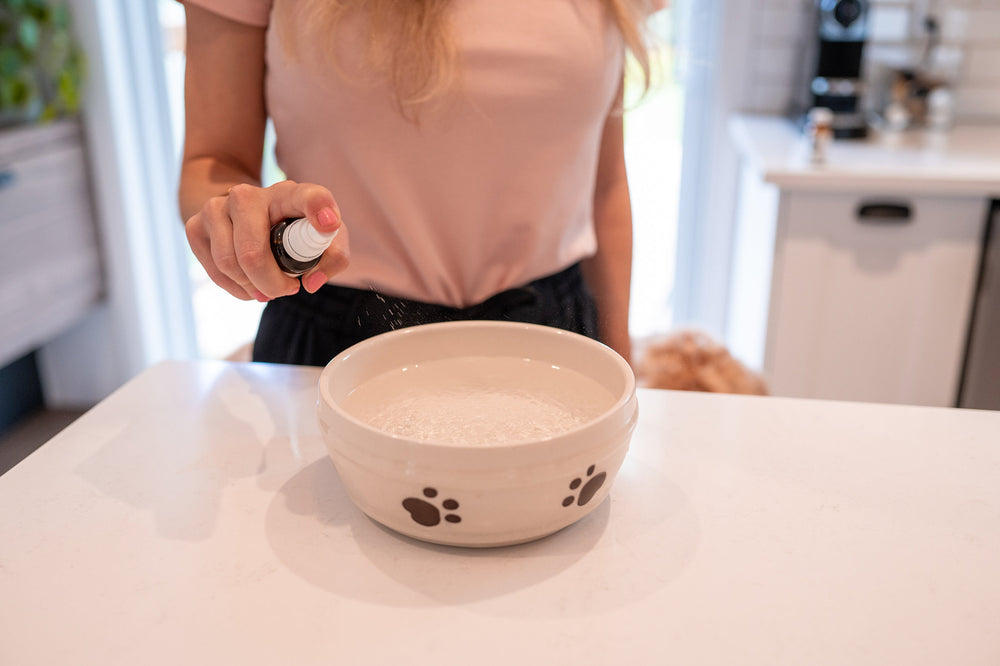Looking For A Dog Trainer? Here’s How To Find The Right One
Looking to hire a local dog trainer in your area? Good for you!
After all, professional training isn’t for “bad” dogs (actually, we believe there’s no such thing!) — every pooch can benefit from practicing new skills. Not only does learning obedience help animals and humans live in harmony, it’s mentally challenging for your pooch, can build confidence and alleviate anxiety, and is a wonderful bonding experience for the two of you to share together.
But finding the right professional takes a little more work than Googling “dog trainers near me.” You’ll want to find someone who’s qualified, of course, but most of all, you’ll want them to take the time to get to know your pal’s personality. Lastly, you’ll want someone who you enjoy working with, too.
Since choosing the right trainer can be a bit of a process, we asked 169 dog trainers from around the world to share their expert advice. From asking the right questions to knowing which types of dog training should be avoided, this guide will help you narrow the search.
Signs Of A Good Dog Trainer
Has many different solutions to one problem
When it comes to dog training, there isn’t one right answer. Just like us, our pups all learn differently and are motivated by different things.
“A good dog trainer will have a thousand different ways to get a dog to do one thing,” says Nichole Petrie of Bella’s K9 Training. Bella of Mikotusar Kennels & Aviary adds that good trainers learn about the pooch’s personality and home life. They should also be able to explain their methods and work with you, the owner, as well. “A good trainer will always want what's best for the dog and will do their best to help ‘problem dogs,’” she concludes.
Doesn’t guarantee miracles, but stands behind his/her work
First, let’s clarify: While trainers shouldn’t promise you’ll have a perfect dog at the end of training, they should stand behind their methods and be willing to work with you until the unwanted behavior has improved.
“Beware of trainers that ‘guarantee’ results,” says Alan Baldwin of Legacy Dog Training. “A good trainer will be confident in their abilities, but dogs are individuals and there is never a guarantee in behavior from one dog to the next.”
However, Zach Holland of Beach For Dogs talks of another guarantee that could be worthwhile. “Ask about the trainer’s refund policy or if they have a lifetime guarantee and will come back to fix any mistakes farther down the line free of charge,” he explains. “A good trainer stands behind what they do and doesn’t charge you every chance they get.”
Has positive references and reviews (that they’re willing to share)
“A good trainer has a proven track record of happy customers,” points out David Levin of Citizen Hound. “If need be, see if your trainer can supply some references for you.”
“Trains” people as well as dogs.
If you want your pup’s new skills to stick, it’s important to stay consistent with training at home. “Dog training isn't just about the dog,” says Levin. “Results will only be permanent if the owner understands the concepts and attains a working level of application. Your trainer should be as good at teaching humans as they are at teaching dogs!”
Practices modern and updated techniques
“A good trainer is committed to continuing education, keeping up with modern best practices, and has a combination of education AND experience,” says Ursa Acree of Canis Major Training. “[They] seek and maintain certifications that independently measure knowledge and skills. They can cite sources for their protocols beyond just ‘It works for me’ or ‘I've always done it this way.’”
Respects the owner’s wishes
“A good trainer should keep both the emotional welfare of you AND your dog in mind at all times,” says Acree. “No trainer should ever make you feel stupid or guilty, nor should they push you to do something with your dog that you're uncomfortable with.”
Has legitimate credentials
You don’t have to be a pet professional to question a trainer’s qualifications — you just have to know a few tricks. “Regarding credentials, any certifications should be earned through independent organizations, not schools that give a ‘certificate of completion,’” says Sue Brown of The Light of Dog. “Ask what any titles really mean and whether they were earned through independent certifications or simply made-up titles to sound impressive.”
Feels like the right fit for you and your dog
It’s not just a matter of finding a “good” trainer versus a “bad” trainer, but of finding one that you and your companion are comfortable with. “Even if a training facility has been recommended to you, [the trainer] might not be the best fit for you,” says Brown. “Some people are great at training dogs, but not very good at working with people. Some are very good at working with people, but not very good at training dogs. Find someone who is a good fit for both you and your dog!”
Warning Signs Of An Unqualified/Inexperienced Dog Trainer
Has outdated training philosophies
Paul Owens of The Original Dog Whisperer emphasizes that training should be a fun, positive experience. He says to beware of: “Anyone who says the adopter must show the dog who's boss or uses the words ‘dominant’ or ‘pack leader’ [and] anyone who hits, kicks, shocks, pins or threatens a dog. We advocate positive, force-free training which means ‘never correct your dog, correct your dog's behavior.’”
Uses physical correction methods or devices
Owens continues, “No choke, shock or prong collars should ever be used. No pinning to the ground, no leash corrections, no threats or punishment should ever be used. Basically, everything is a ‘trick’ and training should be fun and safe. Our motto is: ‘If you're not laughing, neither is your dog!’”
Shows frustration with the dog
Pet professionals should be passionate about animals and about their work, so any trainer who acts otherwise should be questioned. “There are a few things that can raise a red flag,” says Vanessa Berrios of Fur Life K-9 Academy, Inc. “Lack of patience, frustration, bad attitude, [and] unprofessional appearance to name a few.”
...or the owner
“Good trainers will teach their human students patiently and nicely, never making them feel incompetent or stupid,” Berrios adds.
Appears to be an amateur
“Amateurs are not necessarily bad trainers,” clarifies Clark of Intelligent K9 Training. “They might just be limited on their knowledge until they acquire more experience.”
He gives some signs of an amateur trainer, which include: Not knowing how to explain things clearly (or at all), has only one way of teaching a skill to a dog (for instance, not knowing how to train a dog that isn’t food motivated), or just seems to lack a wide variety of tools and extensive knowledge about dog training.
Has a bad reputation
It’s easy to find reviews online, and they should be read and considered carefully. If there’s a pattern of negative feedback, it should be taken seriously.
“Read reviews on their site,” recommends Anthony Catapano of Worry Free Dog Training. “If they don’t have a site or don’t have reviews, go find someone with more proven experience.”
Narrowing It Down
Meet prospective trainers
Judi Schmidt of Cutter’s Quarters Border Collies suggests that owners and their pups interview at least three dog trainers. Be sure to observe how they interact with your pal, and also gauge how your pooch reacts to them.
Catapano agrees. “If your dog doesn’t like them, that’s your biggest red flag to get out. Furthermore, if you don’t get along with the trainer, then move on! You need to have a healthy relationship with the trainer, as all the information and instructions come from the trainer.”
Ask the right questions
Not sure what to ask? Here are some suggestions from the professionals that we interviewed:
- How long have you been training and how many dogs have you trained?
- What’s your specialty, and how long have you specialized in it?
- What’s your training style?
- What are your methods of positive reinforcement?
- What certifications and qualifications do you have?
- Why did you get into dog training?
- Can you give me some references?
Research reviews
Do your research and check their site and Facebook page, as well as third-party sites like Yelp and Angie’s List for reviews.
And if possible, the best “reviews” are from trusted people you know in your community. “Ask around at your local shelters, rescues, or other trusted businesses about the trainer's reputation,” suggests Ann Davidson of Canine Therapy Corps.
Enlisting the help of a professional dog trainer can help both you and your companion gain new skills and make your bond stronger than ever before.
Our pups are intelligent, emotional creatures who are always excited to learn. But more than that, they’re always eager to please us — they just need to be taught how!
If you loved the tips you learned in this article, keep your eye out for our next story on the best dog training resources according to our expert contributors. This will conclude our Ultimate Dog Training Guide, which we hope helps improve the bond between you and your furry friend!
Don’t forget to join us on Facebook to get your daily dose of pet owner tips, tricks, hacks, and cute photos and videos (of course). For even more valuable content, sign up for our newsletter below and you’ll be the first to know about our latest articles, blog posts, and other news.







Hi Virginia,
Thank you for your comment!! We hope that this article has helped in guiding you to the right dog trainer for your beloved fur baby.
Warm regards,
Homeoanimal
need help with a one year old chiawawa wont potty train
Leave a comment